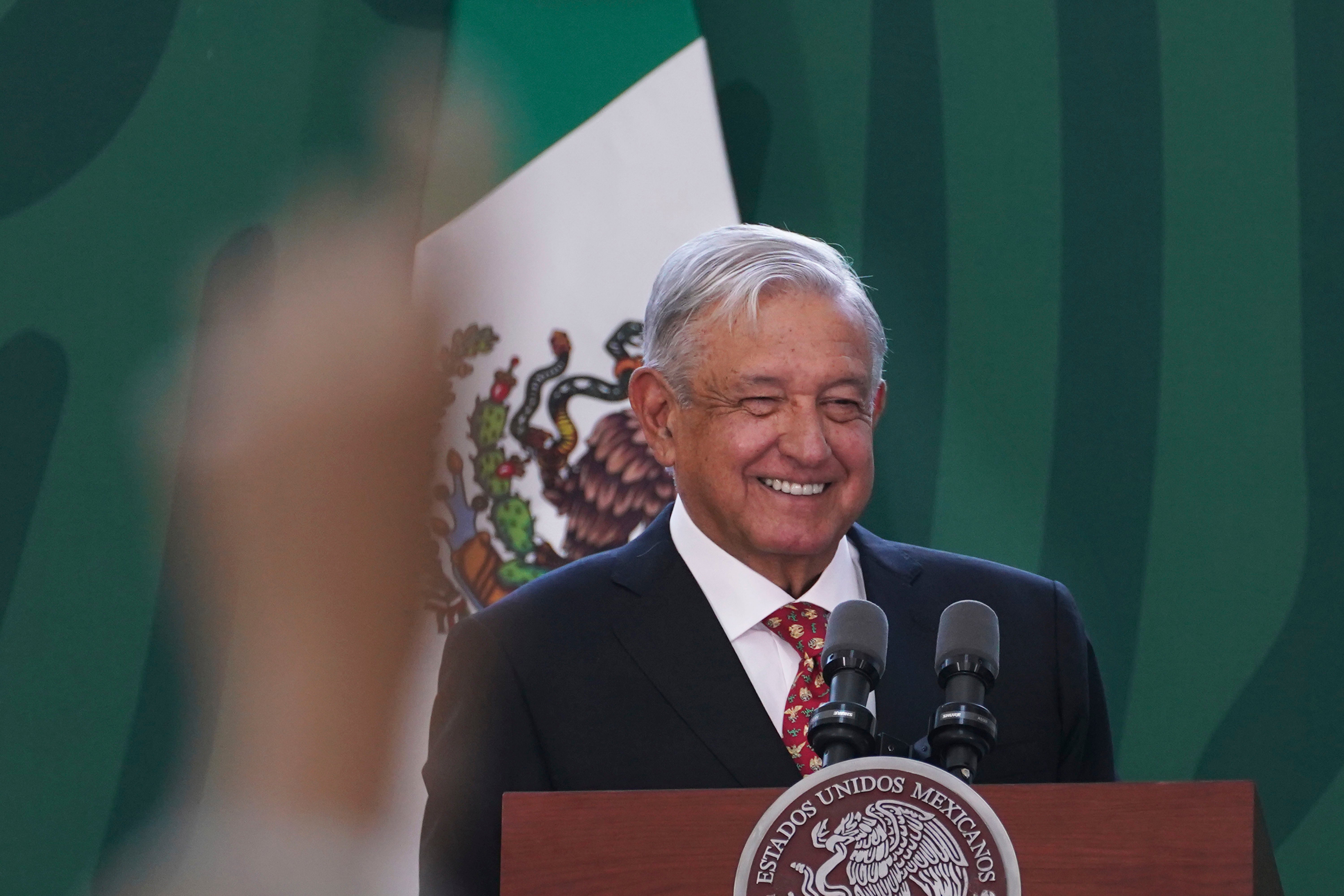Mexican president once again lashes out at environmentalists
A group of Mexican singers, actors and environmentalists have issued a public protest against plans to cut down low jungle between Cancun and Tulum to build a tourist train line

Your support helps us to tell the story
From reproductive rights to climate change to Big Tech, The Independent is on the ground when the story is developing. Whether it's investigating the financials of Elon Musk's pro-Trump PAC or producing our latest documentary, 'The A Word', which shines a light on the American women fighting for reproductive rights, we know how important it is to parse out the facts from the messaging.
At such a critical moment in US history, we need reporters on the ground. Your donation allows us to keep sending journalists to speak to both sides of the story.
The Independent is trusted by Americans across the entire political spectrum. And unlike many other quality news outlets, we choose not to lock Americans out of our reporting and analysis with paywalls. We believe quality journalism should be available to everyone, paid for by those who can afford it.
Your support makes all the difference.A group of Mexican singers, actors and environmentalists have issued a public protest against plans to cut down a swath of low jungle between Cancun and Tulum to build a tourist train line.
In a series of videos, more than a dozen celebrities ask President Andrés Manuel López Obrador to stop the project, which requires massive tree cutting and threatens to collapse underground caves known as “cenotes.”
On Tuesday, actors like Eugenio Derbez and Kate del Castillo, and singers like Natalia Lafourcade, published a video asking the president to stop the construction.
López Obrador angrily rejected the calls Wednesday and called them “fake environmentalists.”
“They convince or they hire performers, fake environmentalists who supposedly are defending the environment, and they start a campaign against the train,” López Obrador said.
López Obrador views the so-called “Maya train” project as a priority of his administration. The 950-mile (1,500- kilometer) rail line will run in a rough loop around the Yucatan peninsula, connecting Caribbean coast resorts with archaeological sites further inland.
Though the area has abundant Indigenous communities, jungles, wildlife and archaeological sites, the project was rushed through with little in the way of consultations, feasibility studies or environmental impact statements.
While rail lines already existed on some parts of the project, the stretch between the resorts of Cancun and Tulum has proved particularly controversial. That's because the area is especially rich in "cenotes", caverns and sinkhole lakes that provide much of the region's water. Some are so close to the surface they could collapse under the weight of the train.
López Obrador originally planned to build an elevated train over an existing highway. When officials realized that would mean closing down the highway, they simply decided to cut through the nearby jungle instead, without any further environmental studies. The jungle is home to endangered species like jaguars.
“The Maya Train is destroying the jungle,” said Derbez, a Mexican actor who is also known for U.S. English-language cross-over comedies like “How to Be a Latin Lover” and “Instructions Not Included.”
“They are cutting down thousands of trees, and it could be millions,” said Del Castillo, who has had roles in U.S. films and television programs like “Bad Boys for Life.”
López Obrador claims the train project includes planting new trees to replace those lost, but environmentalists note such plantings have low survival rates and can't replace the functioning ecosystems that may be lost.
The president has routinely placed his building plans above environmental concerns.
In November, López Obrador issued a broad decree requiring all federal agencies to give automatic approval for any public works project the government deems to be “in the national interest” or to “involve national security.”
The decree published sidesteps all environmental, accountability and feasibility review processes, and gives regulatory agencies five days to grant a year-long ‘temporary’ approval for anything the government wants to build.
The agencies would then have a year to grant definitive approval, by which time the projects would presumably already have broken ground.